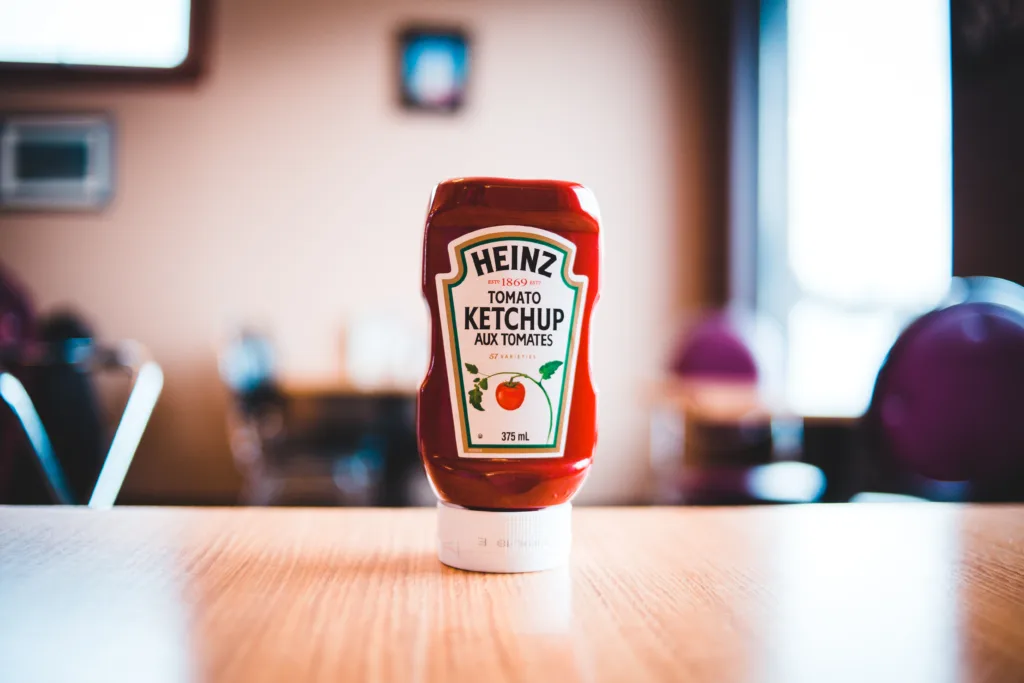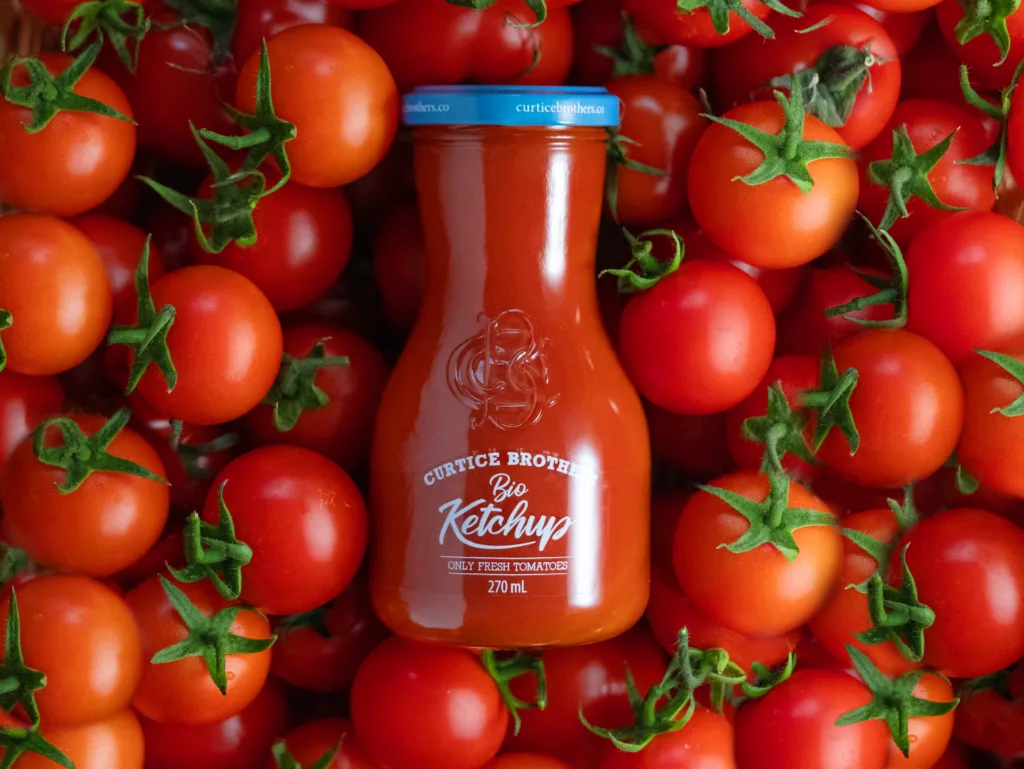Ketchup is a staple in many households, and it’s not uncommon to find a bottle or two in your pantry or fridge. However, with its long shelf life, it’s easy to forget about it and wonder, does ketchup go bad?
The short answer is yes, eventually, ketchup will go bad. However, the good news is that ketchup has a long shelf life and can last for months, even after its expiration date.
Ketchup comes with a best-by or best-if-used-by date, which is a producer’s estimate of how long their product should retain quality. It’s not an expiration date, and it’s important to note that it’s about food quality, not safety.
Unopened ketchup typically lasts for up to a few months past the date on the label. Once opened, ketchup can be stored in the refrigerator for one to six months without changes to color or texture. This is because ketchup is high in acidity, which helps to preserve it.
However, it’s important to note that if there are any changes in the color, texture, or taste of the ketchup, it’s time to discard it. If you notice any mold, sour or yeast-like smell, or an off taste, it’s best to err on the side of caution and throw it out.
It’s also essential to remember to store ketchup properly to extend its shelf life. Store unopened bottles in a cool, dry place away from direct sunlight. Once opened, store the bottle in the refrigerator, and make sure to keep the lid tightly closed to prevent air and bacteria from getting in.
Ketchup can last for months and even up to a year past its expiration date, but it’s important to check for any changes in color, texture, or taste. Discard any ketchup that shows signs of spoilage, and store it properly to extend its shelf life. With these tips, you can enjoy your ketchup without worrying about it goig bad.
The Safety of Consuming Expired Ketchup
It is generally safe to use expired ketchup as long as it has been stored properly and doesn’t show any signs of spoilage such as mold, bad smell or taste. The “best-by” date on ketchup is not an expiration date, but rather an estimate of when the product will start to lose its quality. Ketchup is a highly acidic condiment, which means it can last for quite some time beyod its printed date without posing a health risk. However, if you notice any off flavors, discoloration, or other signs of spoilage, it’s best to discard the ketchup and purchase a fresh bottle. It’s also important to store ketchup in a cool, dry place and to keep it tightly sealed to prevent contamination.

Signs That Ketchup Has Gone Bad
Ketchup is a common condiment found in many households, but it’s important to know when it has gone bad to avoid any unpleasant experiences. There are a few key signs to look out for that indicate your ketchup has gone bad. The first sign is the presence of mold. If you notice any fuzzy or green patches on the surface of the ketchup, it’s time to discard it. Additionally, if the ketchup smells sour or yeast-like, it may have gone bad. if the taste of the ketchup is off, it’s best to err on the side of caution and throw it away. While some darkening and separation of the liquid in ketchup is normal, it’s important to check the taste to ensure it’s still good enough to consume. By checking for tese signs, you can ensure that your ketchup is safe to eat and avoid any potential health risks.
The Shelf Life of Ketchup After Its Expiration Date
Ketchup can still be consumed after its expiration date for a certain period of time. The shelf life of store-bought ketchup is typically up to 6 months when stored in the refrigerator. However, it may still be safe to eat for up to four to six months past the expiration date. It’s important to note that the “best by” or “sell by” labels on the bottle pertain more to quality rather than food safety. As such, it’s recommended to use your senses to determine if the ketchup is still good to eat. Check the color, smell, and texture of the ketchup to make sure it hasn’t gone bad. If it looks, smells, and tastes normal, then it should be safe to consume. However, if thee is any sign of mold or an off-putting odor, it’s best to discard the ketchup to avoid any potential health risks.
How Long Does Opened Ketchup Last?
Opened ketchup can be safely stored in the refrigerator for up to six months without any significant changes to its color or texture. However, if it smells or looks rancid or “off” in any way, it should be discarded immediately. The high acidity level of ketchup helps to keep it fresh for an extended period. Therefore, it is essential to keep the bottle tightly sealed and refrigerated after opening to maintain its quality and taste. Always remember to check for any signs of spoilage before using ketchup in any dish to ensure food safety.
Does Refrigerated Ketchup Expire?
Ketchup, like many other condiments, can expire if it is not stored properly. However, if ketchup is refrigerated, it can extend its shelf life significantly. An opened bottle of ketchup that is stored in the refrigerator can last for around 9 to 12 months while still maintaining its best quality. It is important to note that the flavor and consistency of ketchup may change over time, and it may eventually spoil if it is not consumed within a reasonable amount of time. Therefore, it is aways a good idea to check the expiration date on the bottle, and to use your senses to determine if the ketchup has gone bad. If you notice any signs of mold, an off smell, or a strange taste, it is best to discard the ketchup and replace it with a fresh bottle. refrigerating ketchup is a great way to extend its shelf life and keep it fresh for longer.

Does Refrigerated Ketchup Go Bad After Opening?
Opened refrigerated ketchup can go bad, but it typically stays good for up to six months after opening. Ketchup is a condiment that contains vinegar and sugar, which act as natural preservatives. However, once the bottle is opened, air can enter and bacteria can start to grow. To prevent spoilage, it is recommended to store ketchup in the refrigerator after opening. This will slow down the growth of bacteria and help to extend the shelf life of the product. It is also important to check the expiration date on the bottle befre using it. If the ketchup has an off smell, unusual color, or mold, it should be discarded immediately.
Does Refrigerated Ketchup Grow Mold?
Ketchup is a condiment that is commonly stored in the fridge after opening to maintain its quality and freshness. While ketchup does not typically grow mold quickly, it is still possble for mold to develop over time if it is left in the fridge for too long. The presence of mold in ketchup can be influenced by factors such as the quality of the ketchup, the temperature and humidity of the fridge, and how well the container is sealed. Therefore, it is important to regularly check the expiration date and quality of the ketchup, as well as to properly seal and store it in the fridge to prevent mold growth.
Is It Safe to Eat Two Year Old Ketchup?
Ketchup can last for 1-2 years beyond its date stamp if stored properly, and it’s not uncommon for unopened ketchup bottles to be safe to consume even after this timeframe. However, it’s important to note that the quality and taste of the ketchup may deteriorate over time. Also, if the ketchup has been opened and exposed to air, bacteria may have started to grow, whch can pose health risks if consumed. Therefore, it’s always best to inspect the ketchup before using it, looking for signs of spoilage such as mold, discoloration, or an off odor. If the ketchup looks and smells fine, you can give it a try, but if you notice any signs of spoilage, it’s better to err on the side of caution and discard it.
The Dangers of Refrigerating Ketchup
Ketchup is a condiment that is typically used to enhance the flavor of varios foods, including burgers, fries, and hot dogs. Many people store their ketchup in the refrigerator, assuming that it will help preserve its freshness and flavor. However, it is not necessary to refrigerate ketchup, and doing so may actually have some negative effects on its quality.
The reason why you don’t need to refrigerate ketchup is that it is a shelf-stable product. This means that it has a long shelf life and can be stored at room temperature without spoiling. Heinz Ketchup, for example, can be kept on the shelf until you open it, thanks to its natural acidity that helps prevent bacterial growth.
Refrigerating ketchup may actually cause it to lose its flavor and consistency over time. The cold temperature can cause the ingredients to separate, resulting in a watery texture and an unappetizing appearance. Additionally, the cold can dull the flavor of the spices and other ingredients, making the ketchup taste less vibrant.
It is not necessary to refrigerate ketchup, and doing so may actually harm its quality. As long as you store it in a cool, dry place away from direct sunlight, your ketchup should remain fresh and delicious for months.

The Safety of Eating Expired Condiments
It is not recommended to eat expired condiments as they can potentially cause harm to your health. Condiments, like any other food, have a shelf life and can lose their quality and safety over time. Eating expired condiments can lead to food poisoning, which can cause symptoms like nausea, vomiting, diarrhea, and stomach cramps. Additionally, the taste and texture of expired condiments may be altered, making them unappetizing to consume. To ensure your safety and the quality of your food, it’s best to check expiration dates and discard any condiments that have expired.
Conclusion
Ketchup can last for a considerable amount of time after its printed expiration date. While the “best by” or “sell by” date on the bottle primarily refers to the product’s quality, an unopened bottle of ketchup can still be safe to consume for up to a few months past this date. Once opened, ketchup can be stored in the refrigerator for up to six months, as long as it appeas and smells normal. However, if the ketchup has mold, smells sour or yeast-like, or has an off-taste, it is best to discard it. Due to its high acidity, ketchup has a longer shelf life compared to other condiments, but it is still essential to practice food safety and regularly check the product’s appearance and smell before consuming it.
